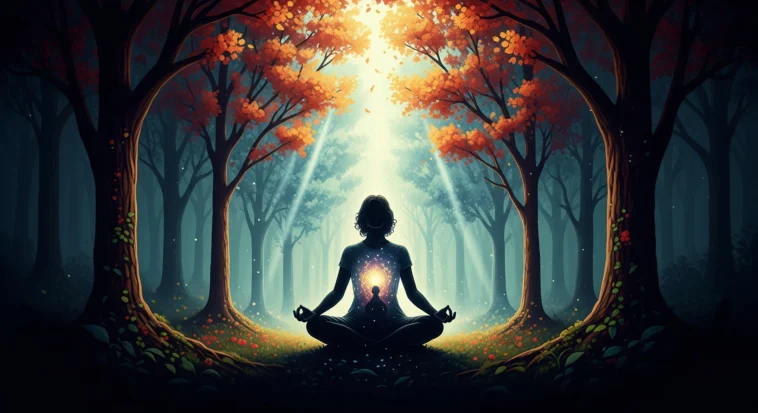
Personal growth is booming—set to hit $108.88 billion by 2034.
But here’s the plot twist: two big approaches often get mixed up—self-mastery and self-improvement.
They’re not the same.
Knowing the difference can change how you level up, making progress that actually sticks.
What Is Self-Improvement?
Self-improvement is the classic “upgrade yourself” route—think adding new apps to your brain, not rewriting the whole operating system.
It’s about doing specific things to get better at life, whether that’s picking up a new skill, fixing bad habits, or smashing personal goals.
You’ll see it everywhere—books, online courses, YouTube gurus promising your “best year ever.”
The Core Traits
- It’s external. You’re focused on what you do, not necessarily who you are. That might mean learning Spanish or finally figuring out how to use your calendar without crying.
- It’s goal-driven. You set a target, you chase it. Lose 20 pounds, read 50 books, land that promotion—if you can check it off a list, it counts.
- It loves quick wins. 30-day challenges, “life hacks,” crash courses—anything that promises speed. Problem is, most people quit halfway (guilty).
- It’s all about tools. Step-by-step systems, habit trackers, productivity frameworks. Find the right method and you’re golden… at least until you forget to use it.
Examples You’ve Probably Tried
- Productivity hacks (color-coding your to-do list until it looks like a Skittles ad)
- Habit stacking (make coffee → meditate → stretch → wonder why you’re late for work)
- SMART goals and OKRs (fancy names for “set a goal and measure it”)
- Time blocking
- Fitness programs and diet plans
- Online skill courses
What Is Self-Mastery?
Self-mastery isn’t about grinding for trophies or flexing on LinkedIn.
It’s the inside game—controlling your mind, emotions, and reactions so life doesn’t control you.
Think of it like being the CEO of your brain instead of an employee stuck in drama mode.
How Self-Mastery Actually Works
- It’s mind over hustle: It’s fixing the software (your mindset) before upgrading the hardware (your habits).
- Progress > perfection: No “final level.” You don’t “win” self-mastery—you practice it daily, like a Jedi training with lightsabers (but less dramatic).
- Your weaknesses? time to adopt them: Self-mastery means staring at your Kryptonite and learning to work with it—not just pretending it doesn’t exist.
- Slow burns win: It’s showing up daily, like brushing your teeth, until one day you realize you’ve got unshakable mental armor.
The Key Ingredients
- Self-awareness: Catching yourself before you spiral (“Why am I actually mad right now?”).
- Emotional control: Not letting a bad text ruin your day. (Yes, even that text.)
- Living by your rules: Not your parents’, society’s, or Instagram’s.
- Bounce-back mode: When life smacks you, you learn—not just cry (okay, maybe cry, then learn).
Key Differences Between Self-Mastery and Self-Improvement
| Aspect | Self-Improvement | Self-Mastery |
| Where Motivation Comes From | Runs on external fuel—society’s standards, comparing yourself to others, or trying to fix what you think is “wrong.” |
Fueled by internal curiosity—wanting to know and grow your authentic self, not just patch flaws.
|
| Timeline & Expectations | Short-term sprints—deadlines, quick wins, and measurable goals. |
Lifelong marathon—measured in years and decades, not days or weeks.
|
| View on Setbacks | Failures mean you need a new plan or system, which can lead to constant strategy-hopping. |
Setbacks are lessons—part of the process. Challenges help you grow instead of threatening your identity.
|
| Relationship with Discomfort | Tries to avoid it—focuses on efficiency and “painless” change. |
Leans into it—sees discomfort as fuel for growth and faces it head-on.
|
| Focus Area | Zeros in on specific “fix-it” zones like career, fitness, or productivity. |
Looks at the whole picture—transforming who you are, not just what you do.
|
The Limitations of Pure Self-Improvement
Yeah, self-improvement seems great—until you realize you’ve spent six months optimizing your life like it’s a TikTok algorithm, only to feel just as lost.
Here’s why going all-in on “fixing yourself” backfires:
The never-ending upgrade cycle
You chase one hack after another—cold showers, bullet journals, dopamine detoxes—but nothing sticks.
It’s like buying every fitness app but never actually working out.
Eventually, you’re just a collector of methods, not results.
You’re polishing the surface
You nail the “perfect” routine, crush your goals, and still feel empty.
Why? Because no productivity hack fixes insecurity, fear, or that voice saying “you’re not enough.”
It’s like putting a Lamborghini body kit on a car with a busted engine—looks fast, but sputters when you hit the gas.
You’re addicted to the high of “Progress”
Likes. Promotions. More followers.
If your worth depends on external wins, you’re setting yourself up for a crash. (Imagine basing your mood on Wi-Fi signal—that’s how unstable this is.)
You burn out chasing a ghost
The self-improvement hamster wheel never stops.
“Read more! Wake up earlier! Hustle harder!”
Eventually, your brain taps out. Even machines need maintenance, but you’re out here acting like you’re a robot with unlimited battery life.
The Power of Self-Mastery
Self-improvement is like cramming for a test—you might pass, but you won’t really learn anything.
Self-mastery? That’s the deep work that actually changes you.
Here’s why it wins long-term:
You stop needing external cheerleaders
No more waiting for motivation, likes, or approval.
Self-mastery runs on internal fuel—you grow because you want to, not because some guru said you “should.”
Life’s punches don’t knock you out
Traffic jam? Rude comment? Bad day? Instead of spiraling, you pause and choose your reaction.
It’s like having an emotional mute button—you control the volume.
You stop living someone else’s script
No more “hustle culture” guilt or FOMO-driven goals.
You figure out what you actually care about—then ignore the rest. (Yes, even if it’s not “trending.”)
Progress sticks because it’s real
No more yo-yo results.
Self-mastery is slow, but it’s like compounding interest—small daily wins add up to unshakable confidence and clarity.
Integrating Both Approaches
Think of personal growth like building a house.
You could start by slapping on fancy wallpaper (self-improvement hacks), but if the foundation (self-mastery) is weak, the whole thing crumbles.
Here’s how to do both without burning out like a TikTok trend.
Start with the boring stuff (Sorry)
Before you obsess over productivity apps or 5 AM routines, figure out:
- What actually matters to you (not Instagram).
- How to handle stress without rage-scrolling.
- Why you even want to “improve” in the first place.
This is like learning to walk before doing backflips. Annoying? Maybe. Necessary? Absolutely.
Use self-improvement like a toolkit
Once you know yourself, grab tactics that fit you. Example:
- If you’re competitive, turn habits into a game.
- If you hate routines, build flexible systems.
The goal isn’t to copy Elon Musk’s schedule. It’s to find what works for you—like choosing sneakers over dress shoes if you’re a runner.
Play the long game
Self-improvement loves quick fixes (”Lose 10 lbs in 3 days!”).
Self-mastery whispers: “Dude, just build habits that don’t ruin your sanity.”
Example: Learning a language in a month sounds cool, but if you burn out, you’ll remember only “burrito” and regret. Slow progress sticks.
4. Check in like it’s your ex’s social media
Every few weeks, ask:
- “Is this still my goal, or did I borrow it from a podcast?”
- “Am I enjoying this, or just grinding for clout?”
If it feels off, pivot. Life’s too short to optimize things you don’t care about.
The Role of Professional Support
Trying to level up alone is like playing Dark Souls with no walkthrough—possible, but why suffer? Sometimes you need backup.
Here’s who to call depending on your struggle:
For self-improvement)
- A coach – Like a gym buddy for your goals, but they won’t let you skip reps. Good if you need structure or someone to call you out when you slack.
- Skill-specific teachers – Want to code, play guitar, or speak French? Find someone who’s already done it. YouTube tutorials only get you so far.
- A mentor – Someone who’s been where you want to go. Think Yoda, but hopefully less cryptic.
For self-mastery
- A therapist – Helps untangle the mental spaghetti of past trauma, anxiety, or why you sabotage yourself. Not just for “broken” people—more like a mental mechanic.
- A spiritual guide – If you’re into mindfulness, philosophy, or finding deeper meaning. Less “woo-woo,” more “how do I stop overthinking existence?”
- A wisdom mentor – Someone who’s mastered their own chaos. They won’t give you a step-by-step plan, but they’ll help you think differently.
Conclusion
Self-improvement = new apps. Self-mastery = system update.
Want real change? First fix your core OS (why you do what you do). Then add the fancy apps (productivity hacks, skills).
Skip step one and you’re just rearranging icons on a glitchy phone. Do both right and you actually upgrade.
Pro tip: This is why everyone’s suddenly obsessed with self-awareness. It works.



